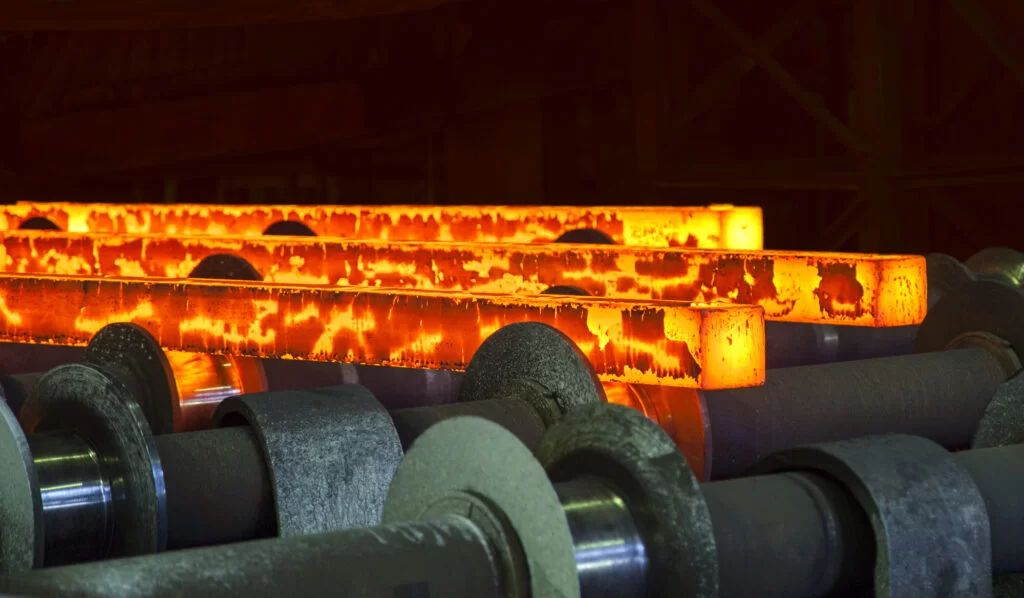Views: 289 Author: Lasting Titanium Publish Time: 2024-10-26 Origin: Site











Content Menu
● Understanding Titanium Hollow Bar Fundamentals
>> Definition and Basic Characteristics
>> Heat Treatment and Finishing
● Properties and Characteristics
● Quality Standards and Specifications
● Future Trends and Developments
>> Advanced Manufacturing Technologies
>> What is the typical wall thickness range for titanium hollow bars?
>> How does the cost of titanium hollow bars compare to solid titanium bars?
>> What are the main advantages of using titanium hollow bars over other materials?
>> How are titanium hollow bars typically joined or welded?
>> What are the main considerations for storing and handling titanium hollow bars?
Titanium hollow bar represents a sophisticated engineering material characterized by its cylindrical shape with a hollow core running through its length. This unique structural configuration combines the exceptional properties of titanium with a design that optimizes weight reduction while maintaining structural integrity. The material exhibits remarkable strength-to-weight ratio, making it an invaluable choice for various industrial applications.
The composition of titanium hollow bars typically consists of either pure titanium or various titanium alloys. The most commonly used alloy is Ti-6Al-4V, which contains 6% aluminum and 4% vanadium. This specific composition enhances the material's mechanical properties while maintaining the inherent benefits of titanium, such as excellent corrosion resistance and biocompatibility.
The manufacturing process begins with careful selection of titanium materials. The initial stage involves preparing the raw titanium through a series of metallurgical processes to ensure proper chemical composition and purity levels. This preparation phase is crucial as it directly influences the final product's quality and performance characteristics.
The formation of titanium hollow bars involves sophisticated manufacturing techniques. The process may include hot extrusion, piercing, or seamless tube manufacturing methods. Each technique requires precise control of temperature, pressure, and forming parameters to achieve the desired dimensions and properties.
After the primary forming process, the titanium hollow bars undergo carefully controlled heat treatment procedures. This crucial step helps optimize the material's microstructure and mechanical properties. The finishing process includes surface treatment, polishing, and quality inspection to ensure the final product meets specified standards.

Titanium hollow bars demonstrate exceptional mechanical properties, including high tensile strength, excellent fatigue resistance, and remarkable toughness. The hollow design contributes to weight reduction while maintaining structural integrity, making it ideal for applications requiring high strength-to-weight ratios.
One of the most notable characteristics of titanium hollow bars is their superior corrosion resistance. The material naturally forms a protective oxide layer on its surface, providing excellent protection against various corrosive environments, including seawater, chemical processing environments, and biological fluids.
The material exhibits unique thermal properties, including low thermal expansion and good heat transfer characteristics. These properties make titanium hollow bars suitable for applications involving temperature variations and thermal stress management.
In aerospace applications, titanium hollow bars find extensive use in structural components, hydraulic systems, and landing gear assemblies. Their lightweight nature combined with high strength makes them ideal for aircraft and spacecraft components where weight reduction is crucial.
The chemical processing industry utilizes titanium hollow bars in heat exchangers, pressure vessels, and piping systems. Their excellent corrosion resistance and thermal properties make them perfect for handling aggressive chemicals and maintaining process integrity.
The biocompatibility of titanium hollow bars makes them invaluable in medical applications. They are used in surgical instruments, implant components, and medical device manufacturing, where sterility and biological inertness are essential.
Marine applications benefit from the corrosion-resistant properties of titanium hollow bars. They are used in offshore platforms, submarine systems, and desalination plants where exposure to seawater is constant.

Titanium hollow bars are manufactured according to strict industry standards, including ASTM, ASME, and international specifications. These standards ensure consistency in quality, dimensions, and performance characteristics across different manufacturers and applications.
Rigorous testing procedures are implemented throughout the manufacturing process. This includes dimensional checks, mechanical testing, chemical analysis, and non-destructive testing to verify product integrity and compliance with specifications.
The industry continues to evolve with the introduction of new manufacturing technologies. Advances in processing techniques and quality control methods are enhancing the production efficiency and quality of titanium hollow bars.
New applications for titanium hollow bars are constantly being developed across various industries. The material's unique properties continue to attract attention in emerging technologies and innovative engineering solutions.
Titanium hollow bars can be manufactured with wall thicknesses ranging from a few millimeters to several centimeters, depending on the application requirements and specifications. The exact thickness is determined by the intended use and structural requirements of the final application.
While titanium hollow bars may have a higher initial cost per unit compared to solid bars, they often provide cost savings in the long run through weight reduction, improved performance, and extended service life. The total cost benefit should be evaluated based on the specific application requirements.
Titanium hollow bars offer superior strength-to-weight ratio, excellent corrosion resistance, biocompatibility, and high temperature performance. These properties make them advantageous over traditional materials in many specialized applications.
Titanium hollow bars can be joined using various welding techniques, including TIG welding, electron beam welding, and specialized fusion welding processes. The welding must be performed in controlled environments to prevent contamination and ensure joint integrity.
Proper storage and handling of titanium hollow bars require clean, dry conditions to prevent surface contamination. They should be protected from physical damage and stored away from incompatible materials. Proper handling procedures and protective packaging are essential to maintain product quality.
This article explores the best titanium wire grades for welding applications, detailing the properties and uses of various grades, including commercially pure titanium and titanium alloys. It discusses factors influencing grade selection, welding techniques, best practices, and applications in industries such as aerospace, medical, and chemical processing.
This article explores the key stages in processing titanium from raw ore to finished rods and wires. It covers extraction, beneficiation, production of titanium sponge, melting, forging, rolling, wire drawing, surface treatment, and quality control. The unique properties of titanium make it suitable for various applications, particularly in aerospace and medical fields. The ongoing advancements in titanium processing technologies promise to enhance its applications further.
This article provides a detailed overview of the manufacturing process of titanium welded tubes, covering raw material selection, cutting, welding techniques, heat treatment, finishing processes, and quality control. It highlights the applications of titanium welded tubes in various industries, emphasizing their advantages and the importance of quality assurance in production.
This article provides a comprehensive overview of sponge titanium, detailing its composition, grades, benefits, and applications. Sponge titanium is a high-purity, porous form of titanium produced through the Kroll process, making it ideal for industries such as aerospace and medical devices. Its unique properties, including lightweight strength and corrosion resistance, make it a valuable material in modern manufacturing.
This article explores how titanium wire is revolutionizing modern manufacturing through its unique properties and applications. It highlights the advantages of titanium wire in various industries, innovations in manufacturing techniques, and the future potential of this remarkable material. As demand for lightweight, high-strength materials grows, titanium wire is set to play a crucial role in advancing manufacturing practices.
This article outlines common mistakes to avoid when purchasing titanium wire, emphasizing the importance of understanding grades, supplier reputation, material specifications, and application requirements. It provides practical tips for ensuring quality and performance, ultimately guiding buyers to make informed decisions in their procurement process.
This article provides a comprehensive guide on selecting titanium wire based on diameter and grade. It covers the properties of titanium wire, common diameter ranges, and the significance of different grades. Key factors for selection, including application requirements and manufacturing processes, are discussed to help ensure optimal performance in various applications.
This article explores the differences between hot rolled and cold rolled titanium round bars, focusing on their production methods, mechanical properties, applications, and advantages. Cold rolled bars offer higher strength and better surface finish, while hot rolled bars are more cost-effective and available in larger sizes. Understanding these differences is crucial for selecting the right titanium material for various industrial applications.
In summary, the choice between cold rolled and hot rolled titanium bars depends on the specific requirements of the application. Cold rolled bars offer higher strength, better surface finish, and tighter tolerances, making them ideal for precision applications. In contrast, hot rolled bars provide cost-effective solutions for larger projects where exact dimensions are less critical. Understanding the differences in production and properties of these two types of titanium bars is essential for selecting the right material for your needs.
This article explores the intricate process of manufacturing titanium wire from raw bar stock, detailing each step from raw material preparation to surface treatment. It highlights the importance of precision in producing high-quality titanium wire, which is essential for various industries, including aerospace and medical applications. The versatility and performance of titanium wire make it a critical material in modern engineering and manufacturing.
This article explores the transformation of sponge titanium into titanium ingots, detailing the key processes involved, including purification, compaction, vacuum arc remelting, and casting. It highlights the importance of each step in ensuring the quality and performance of the final product.
This article explores the key production processes and differences between cold-rolled and hot-rolled titanium sheets. It discusses the impact of production temperature on mechanical properties, surface finish, thickness, and cost considerations. The article also highlights the applications of both types of titanium sheets in various industries, providing insights for selecting the appropriate material for specific projects.
This article explores the process of converting titanium sponge to ingot, detailing each step from purification to melting and casting. It highlights the importance of titanium ingots in various applications and discusses future trends in titanium production, including sustainability and advancements in alloy development.
This article explores the classification of titanium sponge grades, detailing their chemical composition, mechanical properties, and applications. It highlights the differences between commercially pure and alloy grades, emphasizing their importance in various industries. Future trends in titanium sponge production are also discussed, focusing on sustainability and advancements in alloy development.
This article explores the intricate process of converting rutile into titanium sponge, detailing each step from ore preparation to purification and melting. It highlights the importance of titanium in various industries and discusses environmental considerations and future production methods.
This comprehensive guide explores the benefits, applications, and purchasing tips for titanium wire in 3D printing. It covers essential properties, how to choose the right grade, and storage recommendations, making it a valuable resource for anyone interested in utilizing titanium wire for their 3D printing needs.
This article explores the key performance differences between pure titanium wire and titanium alloy wire, highlighting their unique properties, advantages, and applications. Pure titanium wire is known for its excellent corrosion resistance and biocompatibility, making it ideal for medical and marine applications. In contrast, titanium alloy wire offers enhanced strength and performance characteristics, making it suitable for demanding applications in aerospace, automotive, and industrial settings. The choice between the two ultimately depends on specific application requirements.
This article explores the applications of titanium wire in aerospace engineering, highlighting its unique properties such as high strength-to-weight ratio, corrosion resistance, and temperature tolerance. From aircraft structures to engine components and spacecraft applications, titanium wire plays a crucial role in enhancing performance and reliability in the aerospace industry. As technology advances, its applications are expected to expand further.
This article explores the diverse applications of titanium wire in the medical industry, highlighting its biocompatibility, strength, and corrosion resistance. From orthopedic surgery to dental implants and cardiovascular devices, titanium wire plays a crucial role in enhancing patient care and surgical outcomes. As technology advances, its applications are expected to expand further.
This article provides a comprehensive guide on selecting titanium tubes that comply with ASTM and AMS standards. It covers key factors to consider, the importance of compliance, common applications, and future trends in titanium tube manufacturing. Understanding these aspects is crucial for ensuring the safety and reliability of titanium tubes in various industries.
